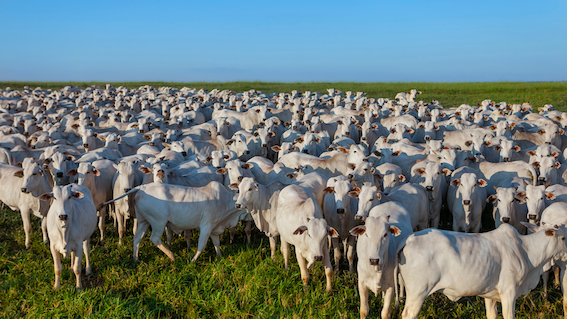Mercosur: EU farmers would be exposed to more unfair competition
The draft Protocol proposed by the European Commission doesn’t provide answer to the actual environment and climate concerns on the Mercosur deal, and much less in attempting to establish a level playing field for EU farmers. Vague political declarations seem to be what’s on the table. Will they suffice to convince the European Parliament and the Council?
The European Commission is known to be seeking an additional Protocol with Mercosur that would accommodate the European Parliament and Council concerns on the lack of strong environmental and climate provisions in the deal. Without further assurances the political process of ratifying the deal was actually frozen.
A leaked draft of that Protocol, labelled “EU-Mercosur Joint Instrument”, sheds light on the approach being followed by the Commission.
The draft consists on a recollection of previous international commitments of all parties; it lists a set of general good intentions with regard to the environment and to fighting climate change; it sets a single new non-binding target on the reduction of deforestation (-50% by 2025), without any proper independent verification process; and, last but not least, it lacks any enforcement mechanisms whatsoever.
What would be the real value of this Protocol? What is the added value in recalling international commitments? To which extent, if any, would that add to the existing commitments? What are general good intentions worth, without targets, and without any enforcement provisions? Even on the well-known problem of deforestation, what does the draft Protocol add to the provisions of the recently adopted EU Regulation on imported deforestation? Does an aspirational, non-binding target assuage widespread concerns on the preservation of the Amazon? If there are no enforcement mechanisms, to which extent are the good intentions and declarations more than empty words?
It is crucial however to put the current on-going negotiations on the additional Protocol in the right context.
The negotiated EU-Mercosur deal between the Commission and the Mercosur countries was already seen as too weak on environmental and climate protection. Since then the Commission has embarked in a set of proposals – the Green Deal – that are piling up new restrictions and obligations on EU farmers: the SUR proposal to reduce by 50% the use of chemical pesticides; the IED, Directive on industrial emissions, encompassing a large part of the EU livestock production; the proposals on mandatory reductions on chemical fertilisers, and on setting aside land for biodiversity; the additional efforts asked to the agricultural sector to reduce GHG emissions.
Does the draft Protocol address any of the new environmental and climate measures proposed? Does it attempt to set-up real “mirror clauses” on imports from Mercosur?
We see none of it. The application of the deal would thus lead to increased unfair competition for EU farmers. They would face higher costs, lower profitability, as a result of the Commission Green Deal proposals, that their Mercosur competitors would not. The situation today is worse for the EU agriculture sector than when the negotiation was finalised in 2019, but the draft Protocol bluntly ignores that fact.
Inevitably, if that were to be the case, imports from the Mercosur would further increase with regard to earlier forecasts. EU agriculture production would decrease, and EU consumption would be satisfied by more imports produced under much lower environmental and climate standards. EU farmers would be worse-off with no world climate benefit.
This draft Protocol doesn’t provide answer to the actual environment and climate concerns on the deal, and much less in attempting to establish a level playing field for EU farmers. Vague political declarations seem to be what’s on the table.
Will they suffice to convince the European Parliament and the Council?
